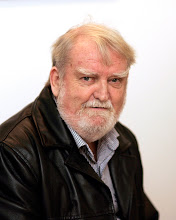I attended the Speed Awareness Course recently. (see post dated 23rd October.) Eighteen of us, eleven male, seven female.) Three failed to turn up so they have three points on their licences that could have been avoided. It was held in a large conference centre. We waited in the foyer before the start. Others in various meetings drifted amongst us. I assume some of them knew why we were there. I don't know whether we looked like 'criminals' but we certainly felt so!
Eighteen people, mainly middle aged though the youngest was twenty five. (I think I was the eldest.) All guilty of speeding, not massively so as 'boy racers' seem to attend a different course; but all guilty of breaking the law nevertheless. (Was the psychology of it all the possibility that we at least were 'saveable?) Some, particularly the ladies were quite overawed by it all, showing symptoms of embarrassment, even shame. A show of hands suggested our main reason for attending was to avoid penalty points, note, not necessarily to learn new skills. The course was run by one individual, an ex-policeman, ex-teacher. The course was very intensive, illustrated with visual aids, delivered not without humour and lasted a massive four hours; not an easy proposition for anyone, least of all those whose classroom experience has been non existent for many years.
I think it is fair to say most of us harboured feelings of being hard done by in various degrees. I have received three speeding tickets in ten or so years. The term serial offender springs to mind! I would have previously argued: once on a deserted road at midnight, plus thought it was a forty, not a thirty limit; once outside a deserted school on a Saturday; once on a remote road in the country, never saw a sign. All present, to a greater or lesser degree committed similar offences. In other words, NOBODY DELIBERATELY broke the speed limit.
The value or otherwise of this course can only be measured by two things. What we retain in our minds after the initial 'lectures' are long gone. Plus whether our future driving behaviour, attitude and experience changes. At my age particularly long term retention is not easy. So what is likely to be remembered longest?
One, no road is dangerous in itself, it depends on the behaviour of the people on it.
Two, the speed limit is 30mph unless stated otherwise. (Often the reason for a 30mph limit is a history of accidents etc.)
Three, where speed limits are signed, this is a MAXIMUM speed, not an obligatory speed.
Four, there is no such thing as a 'quiet' road or time, only a 'quieter' time or road.
Five, the main source of serious accidents, often resulting in death is not the motorways as you might have thought. (On motorways no-one might be turning right or overtaking as on urban roads.)
Much of the course concerning types of signs etc I have forgotten only days after the course. And several points are also worth mentioning. Our collective knowledge of the modern highway code was appalling. There is much to be said for everyone attending this course periodically, say every five years; no one could fail to benefit. A hand out of the points covered would have been useful and after all, we did pay seventy pounds each for our 'sins'. Enjoy is the wrong word for this type of experience. I still think authorities don't always get it right concerning limits. (See video of Swarkstone Bridge, a local landmark, limit, maximum 40mph, in my view ridiculously high. Co-incidentally this week there is an ongoing inquest concerning a death on this bridge earlier this year. But remember, and I reiterate, it is a MAXIMUM speed limit, not an obligatory speed we must maintain. ) But the thing that I personally will remember most from the course is this. The damage to a person or person at speeds over 35mph, rather than at 30mph to 35mph was horrifically memorable. I hope no policeman has to knock on a door to tell a mother her child is not coming home due to my driving. The main message from our afternoon together was 'Yes, speed does kill.'















